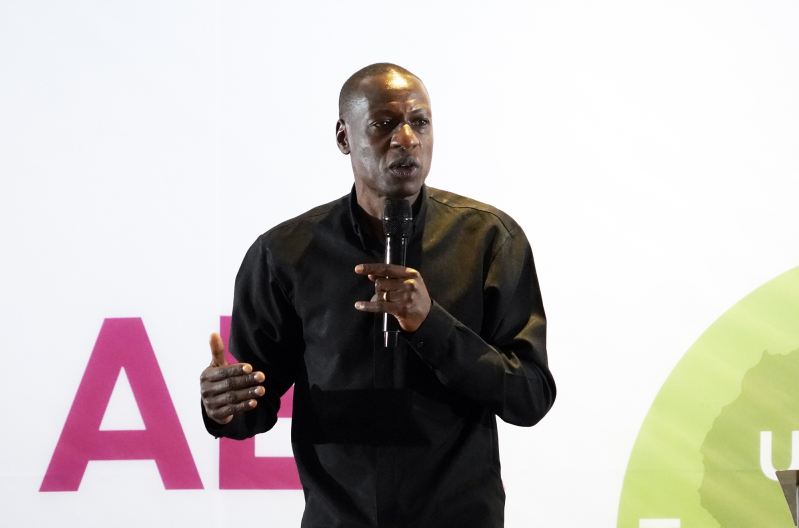
In one of the most engaging and provocative speeches delivered at the 13th General Assembly of the Association of Evangelicals in Africa (AEA), Rev. David Ewagata challenged the continent’s evangelical leadership to radically reassess their assumptions and strategies regarding Africa’s youth. Blending humor, hard data, biblical exposition, and pointed critiques, Ewagata called for a "mission mindset reset" and warned that the future of the African Church hinges on how it engages its youngest generation today.
Speaking before hundreds of delegates gathered in Nairobi, the veteran youth pastor, founder of YHub NetworX, and director of youth leadership development at the Pan Africa Christian (PAC) University opened his address by highlighting the paradox of Africa’s demographic advantage. With a median age of around 19.7 and more than 70% of the population under 30, Africa is home to the world’s youngest population. But Ewagata cautioned that this so-called "youth bulge" is not inherently a blessing unless it is intentionally discipled and mobilized.
"Hope is not a strategy," he said, warning against the widespread assumption that full churches today automatically ensure a faithful Church tomorrow. He stressed that demographic strength without spiritual formation could just as easily result in social instability as in spiritual renewal.
The "Golden Age" of the African Church—and its fragile future
Ewagata described the present moment as the "golden age" of the African Church. He cited its increasing visibility in national development conversations, rising educational levels, expanding infrastructure, and growing financial capacity. African churches now host large conferences, fund building projects, and contribute to global missions.
"We are no longer just a mission field; we are a mission force," he said, noting how African pastors and churches are sending missionaries to Europe, North America, and beyond. But he warned that such institutional maturity also carries the risk of complacency and self-sufficiency.
"The problem with success is that it builds castles. And from those castles, we begin to think we are co-directing the universe with Jesus," he joked, illustrating the tendency of churches to operate from a position of control rather than humility and service.
Diagnosing the present: disconnection, doctrine, and discipleship gaps
Ewagata laid out a sobering diagnosis of the Church’s current posture toward youth, marked by three primary gaps: digital disconnection, doctrinal drift, and discipleship failures.
First, he observed that the Church remains functionally analog while the youth live increasingly digital lives. With young people spending upwards of eight hours online per day, traditional church models are missing the primary arena where youth socialize, learn, and form worldviews.
"The harvest is online. But the laborers are offline," he said.
He criticized churches that invest heavily in physical structures while overlooking the digital platforms where youth are most engaged. He challenged leaders to think of social media not as a threat but as a mission field, calling for bold investment in digital evangelism and discipleship.
Second, Ewagata highlighted doctrinal and moral confusion within the Church as a serious barrier to credible youth ministry. While concerns about Western pressure on sexual ethics are valid, he argued, the Church must also confront internal issues, such as the normalization of premarital sex, abuse of spiritual authority, and the celebrity culture surrounding pastors.
"We are not just facing the LGBTQ issue. We must also ask whether sex is still sacred within our own pews," he said, questioning whether church leaders are modeling biblical integrity.
Third, he emphasized the Church’s failure to intentionally disciple its youth. Drawing from Judges 2:10, he warned of a generation rising up that does not know the Lord.
"What did their parents tell them about the Red Sea? How do you see fish part in two, walk through water, and fail to tell your children?"
The identity crisis of fatherhood and the rise of spiritual substitutes
A key section of Ewagata’s speech explored the widespread absence or dysfunction of fathers in many African homes and its theological implications. He explained how broken homes have led to the rise of "spiritual fathers" and "mothers" who often play surrogate roles in believers' lives, sometimes with mixed consequences.
While spiritual mentorship is not inherently problematic, he warned that the Church has sometimes taken over the family’s discipleship role without first addressing the root issues.
He shared his own story of estrangement and reconciliation with his father, describing a pivotal moment at his grandfather’s funeral when his father publicly affirmed his pastoral calling.
"Of all the prophecies and laying on of hands, nothing could replace hearing my father say, 'David is called.'"
The message was clear: biological parents, especially fathers, must be restored to their roles as spiritual affirmers and disciplers. Without this, the Church will struggle to build secure identities in its youth.
From assumption to action: rethinking strategy for the "Now Generation"
Ewagata rejected the language of "next generation," insisting instead that the youth are the "now generation." They are already born, already forming beliefs, and already responding to what they see in the Church.
"If we are not effectively doing ministry with youth, we are missing 70% of the point," he said. "And while you might be dying, you could be dying successfully—with budgets, buildings, and conferences."
He called on churches to move beyond assuming that youth will inherit their parents’ faith. Instead, churches must actively pass the baton. Using the metaphor of a relay race, he explained that success in intergenerational transmission depends not just on the speed of the runner, but on the precision of the handoff.
"Usain Bolt can run 100 meters in 9.58 seconds. But four ordinary runners passing the baton well can run faster than him," he said. "The power of the relay is in the transition."
Building youth-focused structures and mindsets
Ewagata offered a roadmap for how churches can shift from legacy maintenance to forward-focused ministry. This included:
Planting Next Gen churches: Rather than simply creating youth departments, he urged churches to release younger leaders to plant congregations contextualized for their peers.
Investing in youth pastors: He questioned why churches in youth-majority contexts often allocate most resources to adult ministry, citing examples of churches with 13 adult pastors and only one youth leader.
Embracing cultural discomfort: He acknowledged that younger leaders may dress, speak, or worship differently, but insisted this should not disqualify them. "The church you are uncomfortable in might be exactly the one reaching the next generation."
Evaluating metrics of success: Rather than focusing solely on attendance or offerings, Ewagata suggested measuring transformation—lives discipled, youth empowered, and communities changed.
Seven "I's" for intentional youth engagement
Expanding his framework, Ewagata detailed the seven strategic actions needed to reach youth:
1. Investigate: Conduct research on youth culture, language, and behavior.
2. Identify: Identify with youth and understand their emotional and social realities.
3. Invest: Prioritize youth ministry in time, personnel, and budget.
4. Innovate: Use creative methods to present the Gospel in fresh ways.
5. Involve: Give youth meaningful leadership opportunities.
6. Impact: Ground youth in sound doctrine and Holy Spirit-empowered living.
7. Initiate: Launch new expressions of church and ministry designed by and for youth.
A plea for urgency and integrity
Ewagata concluded by appealing to leaders to examine their own lives, noting that hypocrisy is a leading cause of youth disillusionment with the Church.
"They don’t care what you preach if they don’t see it in your life," he said. He warned that one generation’s permissiveness becomes the next generation’s principle. Children raised in homes where minor compromises are modeled often grow up to adopt those compromises as norms.
He urged parents and pastors alike to take their home witness seriously, saying, "The Church isn’t failing in the pulpit; it’s failing in the house."
Quoting Psalm 145, Ewagata emphasized the biblical mandate to pass on God’s works from one generation to the next. He called on church leaders to commend God’s acts not only in sermons, but in lifestyle, relationships, and institutional priorities.
"The next generation is already here," he said. "The only question is whether we are willing to let go of the baton in time."






